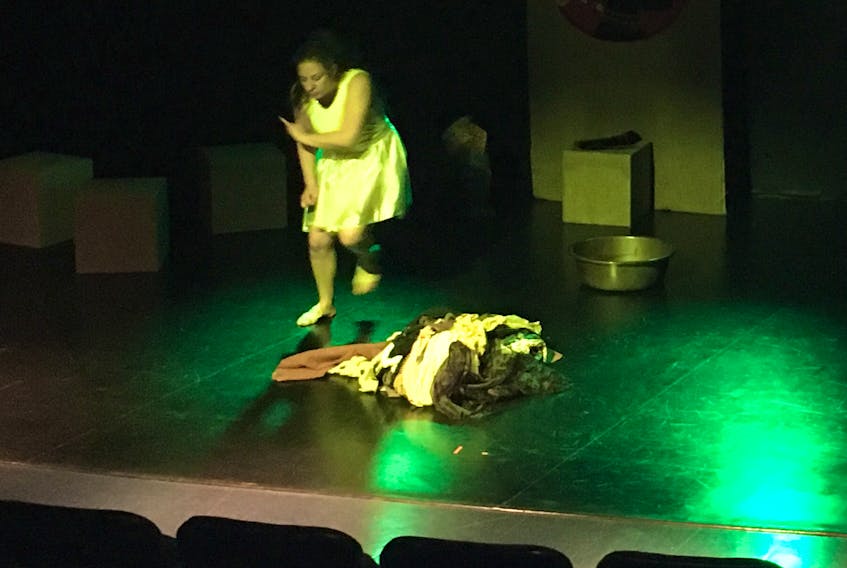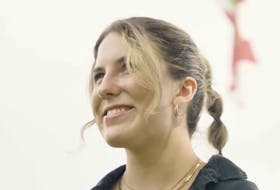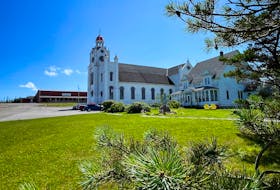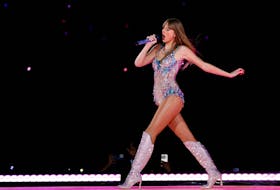“Ori” is a visually stimulating show that uses inanimate objects, fashion and accessories to weave a storyline.
A collaborative effort from choreographer/dance artist Corie Harnett and textile artist Bruno Vinhas, it opened at the Barbara Barrett Theatre in St. John’s on Nov. 1.
As the audience was seated, we slowly realized that the dancer was already on stage, curled up under a swath of earth-toned material.
Moving slowly under the fringed fabric, Harnett began to emerge, like a butterfly leaving its chrysalis. Dropping the cloak, she confidently walked to the front of the stage.
“My name is Corie,” she said. “That’s C-O-R-I-E, the girl spelling.”
Her real name, Cora-Lee, doesn’t fit her properly, she explained.
Recalling details of a childhood with a hyper-feminine mother, Harnett spoke of her mother’s affinity for accessorizing her well-planned outfits, complemented by perfect hair and perfect makeup.
Admiring her own beauty in a handmade mirror she would soon pass around the audience, Harnett continued to explain her mother’s obsession with outer beauty, and her standards for women.
One of the “worst things a woman can do,” Harnett recalled her mother saying, “is to dance with their legs open.”
This led to an R&B/hip-hop dance scene, Harnett first trying to dance modestly with her legs closed, then throwing caution to the wind, breakin’ it down, obeying only the bass.
This theme of Harnett heeding her parents’ words and trying to follow their wishes, but eventually carving out her own path, unobstructed by outward input, would continue throughout the performance.
Donning various fringed skirts, handmade by Vinhas, Harnett told of her family’s ancestral roots in Newfoundland and Ireland, and how she relates to the word “home,” as the daughter of a Newfoundland man raising his children in Mississauga, Ont.
The flowing skirts moved like water, the audio clips of crashing waves and trickling streams seeming to emanate from Harnett’s dance performances throughout the family history lesson.
She spoke of interactions with religious figures, playtime with her younger sister, rebelling against her school uniform protocol, the influence of her badass older cousin, the perils of being evicted from their family home, and the life lessons she learned in “the projects.”
A large portion of the show was spent walking the audience through the process of dealing with her father’s death, and her subsequent move to his hometown of Lord’s Cove, Newfoundland.
Having undergone a journey of self-exploration through family roots, Harnett would soon learn that her father’s home was not about to become her home. As a single, 30-something vegan woman who yearned to make art for a living, she didn’t feel at home.
Harnett decided to move to the capital city before a family member moved forward with their promise to find her “a man.”
Throughout, I kept thinking that Harnett had already found her home — it was on a stage, as she dances to the music. Her face bore signs of true comfort and confidence.
“In making space for my rhythm, I make home,” Harnett told the audience, as she swirled and leapt around the stage in multiple skirts, their fringed layers following her every movement.
Home is where the heart is, and this island has captured the hearts of mainlander Corie Harnett, and Brazilian Bruno Vinhas.
It’s good to be home.









